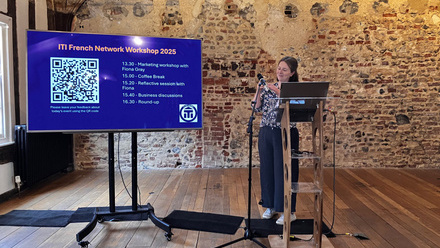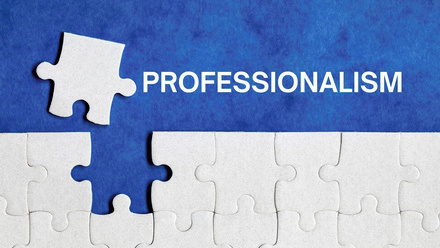CPD: Binge or balance?
Janet Fraser talks about how there's more to CPD than just turning up at a session, and how reflection is an essential part of the CPD process.
The ITI Conference back in May 2022 offered a smörgåsbord of CPD down in Brighton, as do translation and interpreting conferences throughout the year. As a conference veteran, though, I get somewhat dismayed by suggestions that you can reach your CPD target for the year by attending a single event.
Such claims, of course, are intended to create a buzz around the conference – and to remind colleagues of its CPD density. Section 2.1.1 of ITI’s Code of Professional Conduct stipulates, after all, that ‘members […] are required to undertake continuing professional development’.
But equating 30 hours’ content with 30 hours’ CPD suggests it’s enough simply to clock up hours. Doing that at a single event is like eating at a buffet: all those dishes look delicious, but loading your plate with a bit of everything means you end up feeling over-full yet strangely unsatisfied. And bingeing doesn’t make CPD meaningful either: however interesting, topical or inspirational the sessions are, they’re not of equal relevance or value to everyone.
A leading British food retailer labels its products ‘Best enjoyed as part of a healthy lifestyle and balanced, varied diet’. I’d argue that a conference (even ITI’s) is best enjoyed as part of a balanced, varied CPD diet, not a blowout.
Continuing professional development à la carte
My CPD records from recent conferences I’ve attended actually log fewer hours’ CPD than hours’ attendance. That’s because some promising sessions didn’t meet my expectations, were too basic/too advanced or, though interesting, didn’t create genuine learning. Let’s be honest: not all speakers pace their presentations or modulate their delivery. Some just read out PowerPoint slides. And we’ve all sometimes wanted more interaction or more flesh on the bullet-point bones. That can make sustaining concentration difficult – especially online: I’ve led webinars myself and know I had to work harder to keep participants engaged than I would have done face to face.
Beyond the buffet: the importance of digestion
A conference, then, is perhaps best seen as a CPD tasting menu, not an all-you-can-eat offer. But even relevant sessions don’t automatically translate into learning. Participating is just the start; we also need time to digest content and turn raw input into real professional development.
The concept of the ‘reflective practitioner’ emerged in the 1980s, with reflection forming the basis of a ‘virtuous circle’ of continuing professional development. What did I learn from that input? Are there still gaps in my knowledge? Why did a promising session not deliver what I hoped it would? What further training do I need? And which format best suits my needs? Educator John Driscoll has distilled this process into a model of reflective practice comprising three brutally simple questions to ask yourself after any CPD activity – ‘What?’, ‘So what?’ and ‘Now what?’
Serendipity has its place, too. We might sign up for a webinar which takes us in an unexpected direction. An unpromising conference paper can deliver unanticipated insight. A casual mention in a radio programme or newspaper article prompts us to delve into an issue that then feeds into our work. And chatting informally to colleagues can sometimes be as valuable as formal CPD. But like chocolate bars or sticky desserts, these are best kept as an occasional treat.
Like our eating habits, our CPD should be a balanced diet of planning and serendipity, reviewed regularly and underpinned by reflection. In fact, maybe alongside ‘continuing professional development’, CPD should also stand for ‘considered, planned, digested’.






